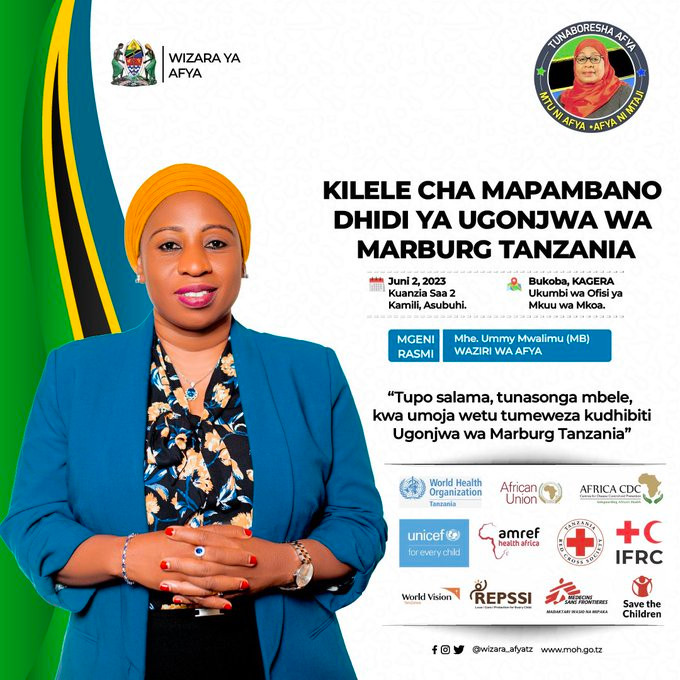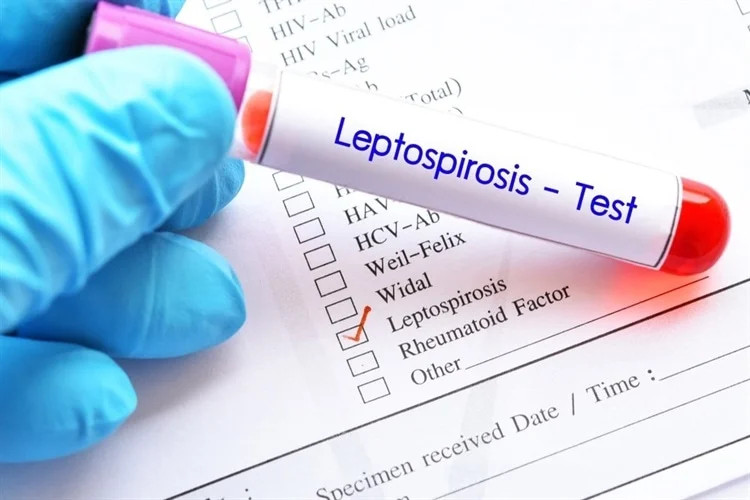On the 2nd of June 2023, the Minister of Health of the United Republic of Tanzania Hon. Ummy Mwalimu (@ummymwalimu), declared the end of its first documented outbreak of Marburg virus disease (MVD), which occurred within the country between 21 March and 31 May in 2023. Nine laboratory-confirmed cases were reported from Bukoba district in Kagera region, and a total of six related deaths were described during the outbreak. The declaration event was attended by officials from the Tanzanian government, Health professionals, and WHO delegates.

In accordance with World Health Organisation (WHO) recommendations, the declaration was made 42 days, twice the maximum incubation period for Marburg virus infection after the last possible exposure to an MVD probable or confirmed case. WHO encourages countries to maintain most response activities for three months after the outbreak ends. This is to make sure that if the disease re-emerges, health authorities would be able to detect it immediately, prevent the disease from spreading again, and ultimately save lives. The United Nations health agency said it was the first such outbreak in Tanzania, an East African country with a population of almost 62 million people.

Hon. Ummy Mwalimu praises all health professionals in the country at all levels of response, particularly frontline healthcare workers, for their tireless efforts throughout the epidemic. She is also grateful to leaders from the Ministry of Health, the President’s Office – Regional and Local Administration, the Prime Minister’s Office, and all other sectoral ministries, as well as citizens, journalists, the private sector, and various stakeholders, for their exceptional efforts toward control and, as a result, these achievements. The efforts and contributions from all national and international partners, including WHO, UNICEF, the US Centers for Disease Control and Prevention, and the African Centers for Disease Control and Prevention; non-governmental organizations, and religious organizations were all recognized and appreciated.

Marburg virus disease (MVD) is a severe and often fatal illness caused by the Marburg virus, a member of the Filoviridae family. The Marburg virus is closely related to the Ebola virus and shares similar characteristics. MVD was first recognized in 1967 during outbreaks in Marburg and Frankfurt, Germany, and Belgrade, Serbia. Transmission of the Marburg virus occurs through direct contact with the blood, body fluids, or tissues of infected humans or animals, such as monkeys or bats. The virus can be transmitted through close personal contact, including caring for an infected person, or through contact with contaminated needles or medical equipment. It can also be transmitted through contact with infected animals, their bodily fluids, or the consumption of their meat.
Once a person is infected with the Marburg virus, they may experience an incubation period of 2 to 21 days before symptoms appear. The initial symptoms of MVD are similar to those of other viral hemorrhagic fevers and include fever, headache, muscle aches, fatigue blood-stained vomit, and diarrhea. As the disease progresses, it can cause severe symptoms such as severe hemorrhagic manifestations, including bleeding from various body orifices, gastrointestinal symptoms, and organ dysfunction. MVD is a highly virulent disease with a high case fatality rate, often ranging from 23% to 90%, depending on the outbreak and the healthcare resources available. There is no specific antiviral treatment for MVD, and management primarily involves supportive care, including fluids, electrolyte management, and treatment of complications. Isolation of infected individuals and implementation of strict infection control measures are essential to prevent the spread of the virus.
Outbreaks of Marburg virus disease have occurred sporadically in Africa, primarily in Uganda, Kenya, South Africa, Equatorial Guinea, and the Democratic Republic of Congo. These outbreaks have typically been associated with activities such as mining, cave exploration, or contact with infected animals. Strict adherence to infection control measures, early case detection, and rapid response is crucial in containing and managing MVD outbreaks.

The Department of Animal, Aquaculture and Range Sciences
The College of Agriculture, Sokoine University of Agriculture
Share this page




